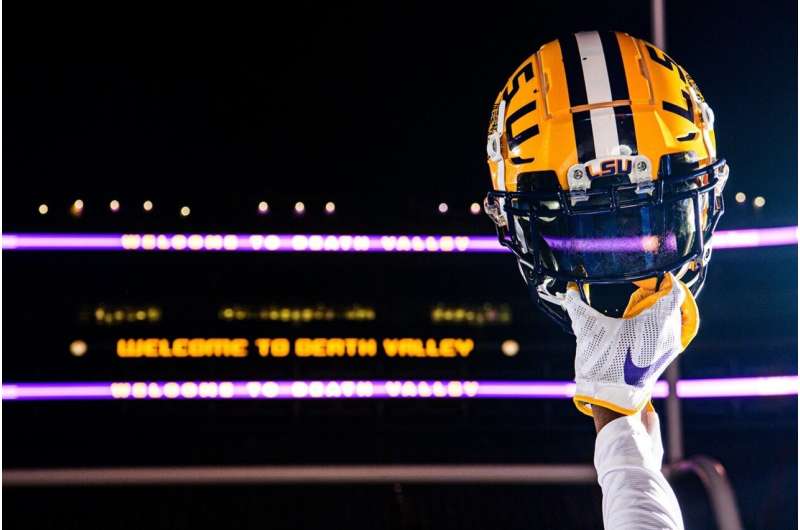
A first-of-its-kind study conducted in collaboration with LSU’s School of Kinesiology, LSU Athletics, Pennington Biomedical Research Center and Our Lady of the Lake researched how the immune system of elite student-athletes responded to the COVID-19 virus.
The football players who were diagnosed with COVID-19 were able to have their immune system back to its baseline after the CDC-recommended isolation. This is in stark contrast with older adults with comorbidities, who tend to be more at risk for serious side effects and symptoms, and even death.
“When COVID-19 really started moving out of control, we met with Neil Johannsen, an exercise physiologist at LSU, and the athletic trainers Derek Calvert and Jack Marucci, and we discussed what we could do to make sure our athletes remained healthy. We especially wanted to make sure that athletes were not at risk for secondary infections when they came back from isolation,” said Guillaume Spielmann, associate professor in LSU’s School of Kinesiology.
Isolation effective after COVID infection
“When the idea started for the research, we discussed why not turn something negative into a positive, and assist with the research to find some answers. If we can do things to understand the virus better, let’s do it,” said Jack Marucci, LSU’s Director of Athletic Training. “The student-athletes were willing to be a part of it.”
During that time at the start of the COVID pandemic, the CDC had recommended 14 days of isolation.
“There was a lot unknown during this time. We are looking at a population that are extremely close to each other during plays and during games. We wanted to make sure that since they are literally face-to-face with other players, that their salivary defenses, their oral defenses were pretty much intact and that that part of their immune system was not affected by the disease; that there were no long-lasting effects of the disease,” Spielmann said.
Saliva samples were collected from 29 student-athletes in 2020, before a COVID vaccine. Fourteen were COVID positive and 15 had no history of infection. Of the 14, only six reported mild symptoms from the virus, the other eight were asymptomatic throughout the isolation period.
“Salivary immunity is extremely important to ensure that people don’t contract secondary infections, so when athletes are coming back we need to make sure they are as healthy as can be. We found that the isolation period was sufficient to restore the athletes’ salivary immunity to the level seen in non-infected players,” Spielmann said.
Safely return to play after COVID
These findings suggested the student-athletes could safely return to practice and play football without a risk of secondary infection; that their immune system wasn’t at risk when playing the close contact sport.
“I was worried a bit about long-haulers and other more significant outcomes like the concerns for the development of myocarditis. Engaging in athletic activities at an elite level can be stressful on the body and you would want to arm yourselves with the best scientific information to help understand potential outcomes. This data helped to validate some of these decisions that were made. Providing a safe environment for your student-athletes is paramount and this helped that process along,” said Shelly Mullenix, LSU’s Senior Associate Athletics Director for Health & Wellness.
For this study, three graduate students also participated in the research. Their research is now published in Scientific Reports.
“This kind of access is unique in Division I sports. You typically don’t have access to football players, so the fact that we have access is hugely instrumental as well,” Spielmann said. “LSU is a great place for this field.”
“I think this COVID research is something that we are really proud to be a part of and contribute to finding answers to such a devastating virus,” Marucci said.
Source: Read Full Article


